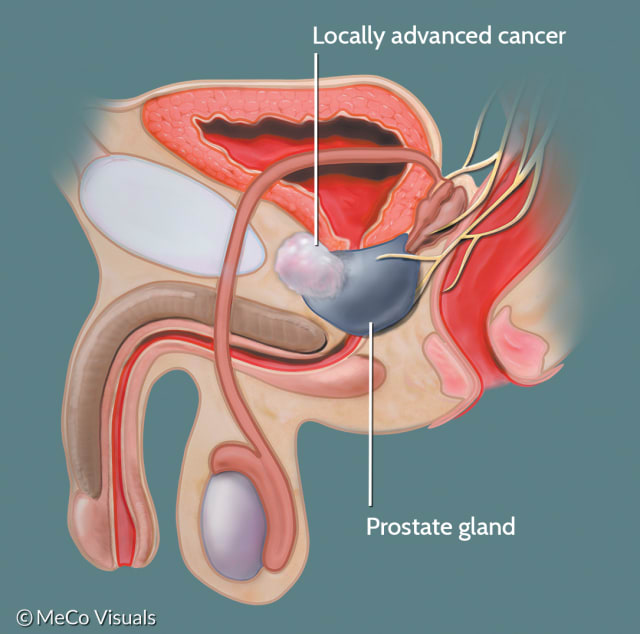Mental Illness and Stigma: How to Break the Silence and Seek Help

Understanding the Impact of Silence on Mental Health

Silence can have a profound impact on mental health, often exacerbating existing struggles and making it difficult to seek help or support. When individuals feel compelled to keep their thoughts and emotions to themselves, they may experience increased feelings of isolation and loneliness. Research has shown that prolonged silence can lead to a decline in mental well-being and can even contribute to the development of mental health conditions such as depression and anxiety.
One study conducted by the University of Pennsylvania found that social isolation and perceived loneliness were associated with an increased risk of developing major depressive disorder. The lack of social connection and communication that often accompanies silence can contribute to negative thoughts and feelings, creating a cycle of isolation and despair. This highlights the importance of breaking the silence and fostering open dialogue about mental health. By creating supportive environments where individuals feel comfortable sharing their experiences, we can help reduce stigma and promote positive mental well-being.
Recognizing the Signs and Symptoms of Mental Illness

Mental illness can often go unnoticed, as the signs and symptoms may be subtle or easily mistaken for other conditions. However, being able to recognize the early signs is crucial in order to seek appropriate help and support. One common indicator of mental illness is a significant change in behavior or mood. This could include sudden and unexplained shifts in emotions, such as feeling excessively sad, anxious, or irritable for extended periods of time. Additionally, individuals experiencing mental illness may exhibit changes in their sleeping patterns, appetite, or energy levels. For instance, they may struggle with insomnia, have a lack of appetite, or feel constantly fatigued. Please be aware that these signs may vary depending on the specific type of mental illness, and it is important to consult a healthcare professional for an accurate diagnosis.
Another telltale sign of mental illness is a noticeable decline in an individual’s ability to function in their daily life. This could present as a drop in performance at work or school, reduced productivity, or an inability to focus and concentrate. Furthermore, people with mental illness may experience difficulty in maintaining relationships or participating in social activities that they once enjoyed. They may withdraw from social interactions and isolate themselves from their friends and family members. It is important to note that everyone experiences mental illness differently, and not all individuals will exhibit the same signs or symptoms. If you suspect that you or someone you know may be struggling with mental illness, it is crucial to seek professional support and guidance to ensure early intervention and appropriate treatment.
The Importance of Education and Awareness in Reducing Stigma

Education and awareness play a crucial role in reducing stigma surrounding mental illness. By providing accurate and reliable information about mental health, we can challenge misconceptions and promote understanding among individuals and communities. Many people hold stigmatizing beliefs about mental illness due to a lack of knowledge and exposure to misleading stereotypes.
Educational initiatives can help break down these barriers by offering facts, statistics, and personal stories that humanize and normalize the experiences of individuals with mental health conditions. When people are armed with accurate information, they are more likely to challenge their own biases and engage in compassionate and supportive behavior. By promoting awareness and understanding, we can create a society where individuals with mental illness feel accepted and supported, rather than judged and excluded.
Challenging Stereotypes and Misconceptions about Mental Illness
One of the most significant barriers to understanding mental illness is the presence of stereotypes and misconceptions. These preconceived notions not only contribute to the stigma surrounding mental health, but they also prevent individuals from seeking the help and support they need. It is crucial to challenge these stereotypes and misconceptions in order to foster a more inclusive and compassionate society.
One common stereotype is the belief that people with mental illness are “crazy” or “dangerous.” However, research shows that individuals with mental health conditions are more likely to be victims of violence rather than perpetrators. In fact, according to the American Psychological Association, people with mental illness are 10 times more likely to be victims of violent crime compared to the general population. Challenging this stereotype and providing accurate information can help debunk these misconceptions and create a safer environment for individuals with mental illness.
Another misconception is the idea that mental illness is a result of personal weakness or character flaws. However, mental health conditions are complex and multifaceted, often stemming from a combination of genetic, biological, and environmental factors. It is not a matter of willpower or being able to “snap out of it.” By challenging this misconception and highlighting the biological and genetic components of mental illness, we can promote a more understanding and empathetic attitude towards those struggling with their mental health.
Here’s a table highlighting common misconceptions and the corresponding challenges to these stereotypes:
| Misconception | Challenge | Source of Information |
|---|---|---|
| Mental illness is a sign of personal weakness | Challenge: Promote the understanding that mental illnesses are complex conditions influenced by biological, psychological, and environmental factors. Encourage empathy and support. | World Psychiatry. 2019 Oct;18(3):233-235 |
| People with mental illness are violent | Challenge: Dispel the link between mental illness and violence. Emphasize that most individuals with mental health conditions are not violent, and many are more likely to be victims than perpetrators. | JAMA Psychiatry. 2014 Sep;71(9):994-1002 |
| Mental illness is a rare and uncommon occurrence | Challenge: Highlight the prevalence of mental health conditions, emphasizing that mental illnesses are common and can affect anyone, regardless of age, gender, or background. | Psychological Medicine. 2015 Feb;45(3):631-48 |
| Seeking help is a sign of weakness | Challenge: Promote the idea that seeking help for mental health concerns is a sign of strength and courage. Encourage open discussions and reduce the fear of judgment associated with seeking assistance. | Journal of Counseling Psychology. 2014 Jan;61(1):19-31 |
| Mental illnesses are just a phase or attention-seeking | Challenge: Emphasize that mental illnesses are real medical conditions that require appropriate treatment and support. Encourage understanding rather than dismissing symptoms. | Social Science & Medicine. 2012 May;74(9):1251-8 |
| Mental illness cannot be treated or managed | Challenge: Highlight the effectiveness of various treatments, including therapy, medications, and support networks, in managing mental health conditions and improving overall well-being. | World Psychiatry. 2015 Oct;14(3):352-3 |
| Only “crazy” people have mental illnesses | Challenge: Promote the understanding that mental health conditions are diverse, affect people from all walks of life, and do not define an individual’s entire identity. Encourage empathy and respect. | The Journal of Social Psychology. 2018;158(3):338-353 |
| Mental health conditions are the result of a character flaw | Challenge: Highlight the biological, genetic, and environmental factors contributing to mental health conditions, emphasizing that they are not a reflection of personal character or moral values. | The American Journal of Psychiatry. 2015 May;172(5):412-24 |
| Children cannot experience mental illnesses | Challenge: Increase awareness of the prevalence of mental health conditions in children and adolescents. Advocate for early intervention and support for young individuals experiencing mental health challenges. | Journal of the American Academy of Child & Adolescent Psychiatry. 2018 Feb;57(2):84-96 |
| Medications are the only solution for mental health conditions | Challenge: Promote a holistic approach to mental health care, including therapy, lifestyle changes, and social support. Highlight that treatment plans are individualized and may involve a combination of interventions. | Journal of Clinical Psychiatry. 2016 Mar;77(3):e242-51 |
Promoting Open Dialogue and Conversation about Mental Health
Open dialogue and conversation about mental health play a crucial role in breaking the silence and reducing the stigma surrounding these issues. When we create a safe and supportive space for individuals to share their experiences and feelings, it encourages open-mindedness, empathy, and understanding. By openly discussing mental health, we can help normalize it and promote awareness among friends, family, and larger communities.
Through these conversations, individuals can gain a better understanding of mental illnesses and learn about the various challenges and experiences that people with mental health conditions face. It allows us to challenge stereotypes and misconceptions, providing factual information that can dispel myths and promote accurate understanding. Moreover, open dialogue allows individuals to share resources, coping strategies, and personal stories that can inspire hope and resilience in others. By promoting open conversation about mental health, we can create a supportive environment where people feel comfortable seeking help and finding the support they need.
Breaking the Silence: Sharing Personal Stories and Experiences
Breaking the Silence: Sharing Personal Stories and Experiences
Opening up about one’s personal struggles with mental illness is not an easy task. It requires courage, vulnerability, and a willingness to challenge the prevailing stigma surrounding mental health. However, the act of sharing personal stories and experiences can have a profound impact on both the storyteller and the listener.
By sharing their stories, individuals with mental illness are able to break free from the isolation and shame that often accompany their conditions. It allows them to connect with others who may be going through similar battles, fostering a sense of solidarity and support. Moreover, the act of sharing can provide a cathartic release, offering individuals a platform to express their emotions, fears, and triumphs. This, in turn, can contribute to a sense of empowerment and personal growth. As one survivor aptly put it, “Sharing my story not only helps me heal, but it helps others realize that they are not alone.”
Creating Supportive Environments for Individuals with Mental Illness
Creating supportive environments for individuals with mental illness is crucial for their overall well-being and recovery. When individuals feel supported and understood, it can have a significant positive impact on their mental health journey.
One way to create a supportive environment is by promoting empathy and understanding. It is important for family members, friends, coworkers, and society as a whole to educate themselves about mental illness and the challenges that individuals face. This can help reduce stigma and provide a more compassionate and inclusive environment where individuals feel comfortable seeking help and sharing their experiences.
In addition, providing access to mental health resources and services is essential in creating a supportive environment. This can include ensuring that mental health professionals are readily available and that there are adequate resources for treatment and support. By offering a range of options such as therapy, counseling, support groups, and educational programs, individuals can find the help they need in a supportive and accessible manner.
Creating supportive environments for individuals with mental illness requires a collective effort from society. By fostering empathy, understanding, and providing access to resources and services, we can break the silence surrounding mental health and create a more supportive and inclusive environment for all.
Overcoming Barriers to Seeking Help for Mental Health Issues
Seeking help for mental health issues can be a daunting task for many individuals. There are numerous barriers that can hinder someone from reaching out for the support they need. One significant barrier is the stigma surrounding mental illness, which often leads to fear of judgment and discrimination. This stigma has been perpetuated by society’s misunderstanding and misrepresentation of mental health conditions.
Another barrier to seeking help is the lack of awareness and education about mental health. Many individuals may not recognize the signs and symptoms of mental illness in themselves or others, leading to a delay in seeking treatment. Additionally, there may be a lack of understanding about the available resources and support networks that can provide assistance.
Financial constraints can also impede individuals from seeking help. Mental health services can be costly, and not everyone has access to affordable or comprehensive healthcare coverage. This can result in individuals feeling isolated and unable to access the support they need.
Overcoming these barriers requires a collective effort from society, healthcare providers, and policymakers. Increasing education and awareness about mental health can help debunk myths and reduce the stigma surrounding mental illness. Providing accessible and affordable mental health services is crucial to ensure that financial limitations do not hinder individuals in need. Additionally, fostering supportive environments and promoting open dialogue about mental health can create a safe space for individuals to seek help without fear of judgment.
In conclusion, breaking down barriers to seeking help for mental health issues is crucial for individuals to receive the support they need. By addressing the stigma surrounding mental illness, improving education and awareness, ensuring financial accessibility, and fostering supportive environments, we can create a society that values mental health and encourages individuals to seek the help they deserve.
The Role of Family and Friends in Breaking the Silence and Offering Support
When it comes to mental illness, the support of family and friends can play a crucial role in breaking the silence and offering much-needed support. Those who are suffering may find it difficult to open up about their struggles, but having a strong support network can make all the difference. Family and friends can provide a safe and understanding environment where individuals feel comfortable sharing their feelings and experiences. Additionally, their presence and support can help combat the social stigma surrounding mental health, encouraging open dialogue and promoting acceptance.
One way in which family and friends can contribute is by educating themselves on mental health issues. Learning about different conditions and their symptoms can help loved ones recognize warning signs and provide early intervention. It is also essential for them to understand the available treatment options and support services so that they can guide their loved one towards the appropriate help. By arming themselves with knowledge, family and friends can become allies in the journey towards mental health recovery and support their loved ones with empathy and understanding.
Exploring the Different Types of Mental Health Professionals and Services
Mental health professionals play a crucial role in providing support and treatment for individuals experiencing mental health challenges. There are various types of professionals and services available, each with unique specialties and areas of expertise. Let’s explore some of the different types of mental health professionals and services that can help individuals on their journey to mental well-being.
One key type of mental health professional is a psychiatrist. Psychiatrists are medical doctors who specialize in diagnosing and treating mental illnesses. They have the expertise to prescribe medication, provide therapy, and offer a comprehensive approach to mental health care. This can be especially beneficial for individuals with severe mental health conditions that require medication management as part of their treatment plan.
Another important mental health professional is a psychologist. Psychologists hold advanced degrees in psychology and are trained to assess and diagnose mental health disorders. They provide therapy and counseling services, utilizing various therapeutic techniques to help individuals manage their symptoms, improve coping strategies, and work towards personal growth and well-being. Psychologists often work in private practice, community mental health centers, or research and academic settings.
Clinical social workers also play a vital role in mental health care. These professionals have a master’s degree in social work and provide therapy, counseling, and support services. They often work with individuals, families, and groups, helping them navigate challenges, develop coping skills, and connect with community resources. Social workers may specialize in areas such as substance abuse, trauma, or child and family therapy.
In addition to these professionals, there are other types of mental health services that individuals may access. For example, psychiatric nurses provide specialized care and support in both inpatient and outpatient settings. They may administer medications, monitor treatment progress, and provide education and counseling to individuals and their families.
It is important to note that the specific services and expertise offered by mental health professionals may vary depending on the country or region. It is always advisable to consult with a healthcare provider or mental health organization to determine the best professional or service for one’s specific needs. The key is to find a trusted and qualified mental health professional who can provide the support and treatment necessary for individuals to achieve optimal mental well-being.
Understanding the Benefits of Therapy and Counseling for Mental Illness
Therapy and counseling can be powerful tools in promoting mental health and well-being. These interventions provide individuals with a safe and empathetic space to explore their thoughts, emotions, and experiences. Through therapy, individuals can gain a better understanding of themselves, develop coping strategies, and work towards personal growth.
One of the key benefits of therapy and counseling is the opportunity for self-reflection and self-awareness. By engaging in meaningful conversations with a trained professional, individuals can gain insights into their thoughts, feelings, and behaviors. This self-awareness can be transformative, as it allows individuals to identify and challenge unhelpful patterns, beliefs, and assumptions.
In addition to self-reflection, therapy and counseling also provide individuals with practical tools and strategies to manage their mental health. Therapists and counselors are trained in evidence-based techniques that are tailored to individual needs. These techniques may include cognitive-behavioral therapy, mindfulness-based approaches, or solution-focused therapy, among others. By learning and practicing these techniques, individuals can develop healthier coping mechanisms and problem-solving skills.
It is important to note that therapy and counseling are not quick fixes, and progress may take time. However, research consistently shows that therapy can be effective in reducing symptoms of various mental health conditions, improving overall well-being, and enhancing quality of life.
In conclusion, therapy and counseling offer numerous benefits for individuals facing mental health challenges. By providing a supportive and non-judgmental environment, these interventions can empower individuals to gain self-insight, develop effective coping strategies, and work towards personal growth. If you or someone you know is struggling with mental health, consider reaching out to a qualified therapist or counselor to explore the benefits that therapy can provide.
Addressing the Role of Medication in Treating Mental Health Conditions
Medication can play a crucial role in the treatment of mental health conditions. For many individuals, it provides relief from symptoms and helps them regain control over their lives. One of the most commonly prescribed types of medication for mental health is antidepressants. These drugs work by balancing chemicals in the brain called neurotransmitters, which are involved in regulating mood and emotions. Research shows that antidepressants can be highly effective in reducing symptoms of depression and anxiety, improving overall well-being and quality of life.
In addition to antidepressants, other medications such as mood stabilizers, antipsychotics, and anti-anxiety drugs may be prescribed depending on the specific mental health condition. These medications work by targeting different neurotransmitters and pathways in the brain to address symptoms such as mood swings, hallucinations, and panic attacks. It is important to note that medication alone is not always sufficient for treating mental health conditions. It is often most effective when used in combination with therapy, counseling, and lifestyle changes. It is essential for individuals to work closely with their healthcare provider to find the right medication and dosage that works for them, as well as to actively participate in therapy and make necessary lifestyle adjustments for holistic and comprehensive treatment.
Identifying Community Resources and Support Networks for Mental Health
Identifying community resources and support networks is crucial in promoting mental health and well-being. These resources provide individuals with a range of services and assistance to help them navigate through the challenges they may be facing. From counseling centers to helplines, these support networks offer a lifeline to those in need.
One invaluable resource is the National Alliance on Mental Illness (NAMI), a non-profit organization that provides education, support, and advocacy for individuals and families affected by mental health conditions. NAMI offers various programs, including support groups, educational classes, and helpline services, all aimed at providing individuals with the necessary tools and resources to manage their mental health effectively. Additionally, they have a comprehensive online database that allows individuals to locate local resources based on their specific needs.
Another essential community resource is Crisis Text Line, a free 24/7 text-based support service that connects individuals in crisis with trained crisis counselors. The anonymity and accessibility of this service make it an invaluable option for those who may be hesitant to seek help through traditional means. By simply texting a designated number, individuals can receive immediate support, guidance, and resources to address their mental health concerns.
Overall, recognizing and utilizing community resources and support networks is fundamental in breaking the silence surrounding mental health and offering individuals the help they need. These resources provide a safe and supportive environment where individuals can find solace, understanding, and guidance on their journey towards mental well-being.
Taking Self-Care Steps to Promote Mental Well-being and Resilience
Self-care plays a crucial role in promoting mental well-being and resilience. Taking proactive steps to prioritize self-care can significantly improve your overall mental health and enable you to better cope with life’s challenges. Here are some strategies you can incorporate into your routine to support your mental well-being.
First, make sure to prioritize self-care activities that bring you joy and relaxation. Engaging in hobbies, such as painting, gardening, or playing a musical instrument, can provide a much-needed break from everyday stressors. Additionally, practicing mindfulness and meditation techniques has been shown to reduce anxiety and improve overall mental well-being.
Another important aspect of self-care is maintaining a healthy lifestyle. Regular physical exercise not only benefits your physical health but also has a positive impact on your mental well-being. Exercise releases endorphins, which are known as “feel-good” hormones that can boost your mood and reduce symptoms of depression and anxiety.
Furthermore, it is essential to ensure you get enough sleep each night. Poor sleep can significantly impact your mental health, leading to increased stress, irritability, and difficulty concentrating. Prioritize establishing a regular sleep routine and creating a relaxing sleep environment to support a good night’s rest.
Lastly, remember the importance of connecting with others. Building and nurturing meaningful relationships is crucial to our mental well-being. Reach out to friends and loved ones, schedule regular social activities, and seek support when needed. Sharing your feelings and experiences with trusted individuals can help reduce stress and provide a sense of belonging.
Taking self-care steps to promote mental well-being and resilience is a journey. By incorporating these strategies into your daily routine, you can cultivate a healthier mindset and better equip yourself to handle life’s ups and downs. Remember to be kind to yourself and prioritize your mental health – it is an investment that yields long-term benefits.
Encouraging Others to Seek Help and Break the Silence surrounding Mental Illness
Encouraging others to seek help and break the silence surrounding mental illness is crucial for promoting better mental health outcomes. By reaching out and offering support, we can make a positive impact on the lives of those struggling with mental health issues.
One effective way to encourage others to seek help is by creating a safe and non-judgmental environment. People may be hesitant to seek help due to fear of stigma or judgment. By offering a compassionate and understanding space, we can help to alleviate these concerns and empower individuals to take the first step towards getting the help they need.
Additionally, sharing personal stories and experiences can be a powerful way to break the silence surrounding mental illness. When someone sees that others have faced similar challenges and have found support and recovery, they may feel more encouraged to seek help themselves. Personal narratives help to humanize the experience of mental illness and show that seeking help is not a sign of weakness, but a courageous step towards healing.
How can silence impact a person’s mental health?
Silence can have a detrimental effect on mental health as it can contribute to feelings of isolation, shame, and stigma. When individuals do not feel comfortable discussing their struggles or seeking help, it can worsen their condition and prevent them from receiving the support they need.
What are some signs and symptoms of mental illness that should not be ignored?
Some common signs and symptoms of mental illness include persistent feelings of sadness or hopelessness, changes in sleep patterns or appetite, withdrawal from social activities, excessive worry or fear, difficulty concentrating, and sudden mood swings. It is important to take these signs seriously and encourage the individual to seek professional help.
How can education and awareness help reduce the stigma surrounding mental illness?
Education and awareness can help dispel myths and misconceptions about mental illness, allowing for a better understanding of these conditions. By promoting accurate information, people can develop empathy and support individuals with mental illness, reducing the stigma associated with seeking help.
How can we challenge stereotypes and misconceptions about mental illness?
Challenging stereotypes and misconceptions about mental illness involves educating ourselves and others about the reality of these conditions. It is important to recognize that mental illness is not a character flaw or a sign of weakness. By sharing accurate information and personal stories, we can challenge these stereotypes and promote understanding.
What can we do to promote open dialogue and conversation about mental health?
To promote open dialogue about mental health, it is crucial to create safe and non-judgmental spaces where individuals feel comfortable sharing their experiences. Encouraging conversations, listening without judgment, and offering support are all effective ways to foster open dialogue about mental health.
How can personal stories and experiences help break the silence surrounding mental illness?
Sharing personal stories and experiences can help break the silence surrounding mental illness by humanizing the struggles individuals face. It allows others to relate and understand that they are not alone in their experiences, encouraging them to seek help and share their own stories.
How can we create supportive environments for individuals with mental illness?
Creating supportive environments for individuals with mental illness involves fostering understanding, empathy, and acceptance. This can be achieved by promoting open conversations, providing resources and information, and actively challenging stigmatizing behaviors or attitudes.
What are some barriers that may prevent individuals from seeking help for mental health issues?
Some barriers to seeking help for mental health issues include stigma, lack of awareness about available resources, fear of judgment or discrimination, financial constraints, and cultural or societal beliefs. It is important to address these barriers and provide support and resources to overcome them.
How can family and friends play a role in breaking the silence and supporting individuals with mental illness?
Family and friends can play a crucial role in breaking the silence surrounding mental illness by offering support, understanding, and encouragement. By educating themselves about mental health, being non-judgmental, and actively listening, they can create a safe space for individuals to share their struggles and seek help.
What are the different types of mental health professionals and services available?
Mental health professionals include psychiatrists, psychologists, counselors, therapists, and social workers. They provide a range of services such as therapy, counseling, medication management, and support groups. The type of professional or service needed depends on the individual’s specific needs and preferences.
What are the benefits of therapy and counseling for mental illness?
Therapy and counseling provide a safe and supportive environment for individuals to explore their thoughts, emotions, and behaviors. These interventions can help individuals develop coping strategies, gain insight into their mental health, improve their overall well-being, and manage symptoms of mental illness.
How does medication play a role in treating mental health conditions?
Medication can be an effective treatment option for certain mental health conditions, such as depression, anxiety disorders, or bipolar disorder. It can help regulate brain chemistry and alleviate symptoms. However, medication should always be prescribed and monitored by a qualified healthcare professional.
What community resources and support networks are available for mental health?
Community resources for mental health include helplines, support groups, community mental health centers, and online forums. These resources provide information, support, and a sense of community for individuals seeking help or wanting to connect with others who have similar experiences.
What self-care steps can individuals take to promote mental well-being and resilience?
Some self-care steps to promote mental well-being include practicing relaxation techniques, engaging in regular physical activity, maintaining a balanced diet, getting enough sleep, setting boundaries, seeking social support, and engaging in activities that bring joy and fulfillment.
How can we encourage others to seek help and break the silence surrounding mental illness?
We can encourage others to seek help and break the silence surrounding mental illness by being supportive, non-judgmental, and empathetic. By sharing accurate information, dispelling myths, and promoting open conversations, we can help individuals feel empowered to seek help and share their experiences.






